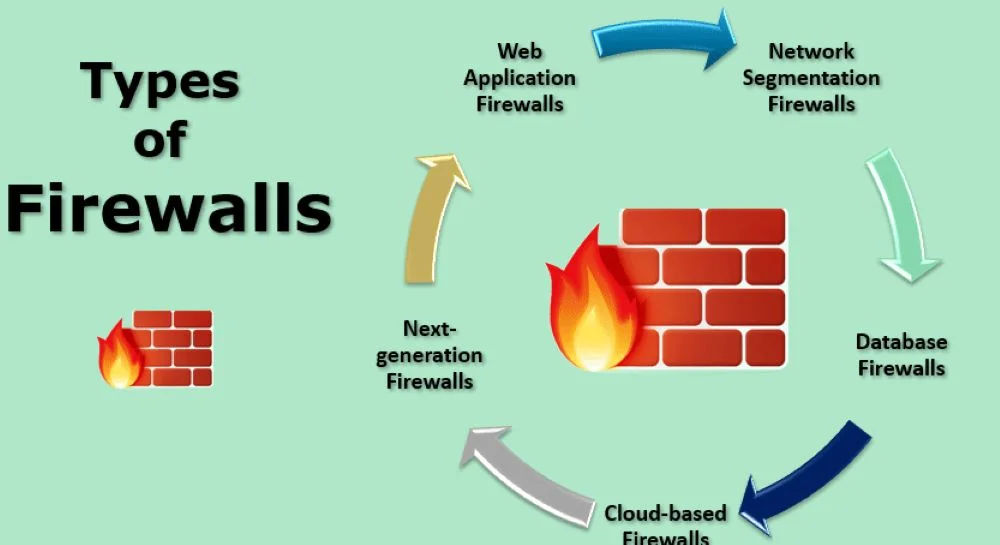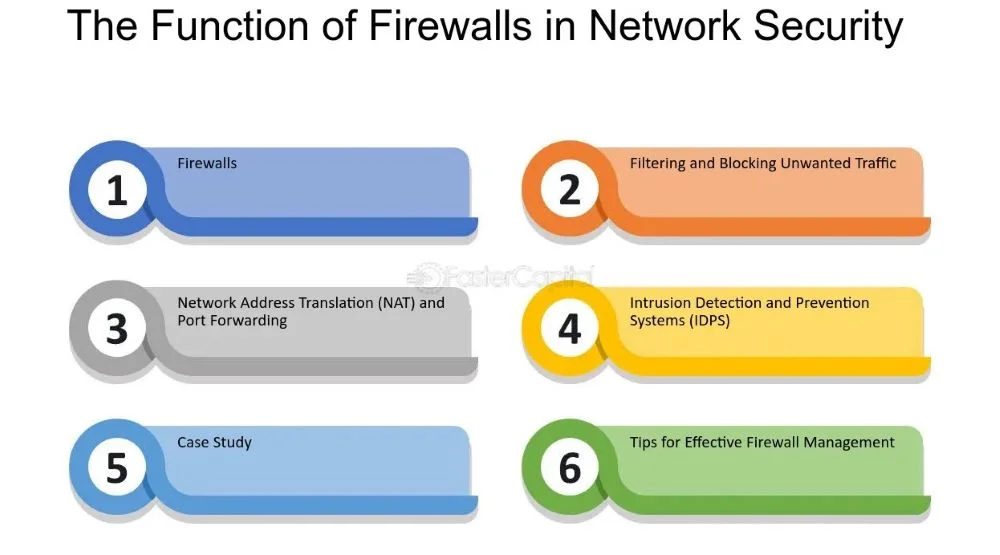Firewalls: Your Trusted Guardian in the Digital World
Think of your computer or network as a home where all of your priceless possessions are kept. A firewall acts as a powerful, imperceptible gatekeeper at the front entrance, monitoring who enters and exits your digital environment. It serves as your first line of security, allowing safe, reliable connections to go through while blocking undesirable visitors like viruses, hackers, and other online dangers.
Firewalls quietly operate in the background to keep everything safe, whether you’re browsing the web, working on critical projects, or streaming your favorite TV. Anyone who wants to feel secure online can use them; they are not only for techies. Let’s get started and see how firewalls shield us from the digital wilderness!
1. What Are Firewalls and Why Do We Need Them?
By regulating the flow of incoming and outgoing traffic according to preset security rules, firewalls serve as your network’s virtual security guard. They create a barrier of defense between your network or device and possible online threats, making sure that only authorized and secure data may get through. Like an unlocked entrance in a busy city, your network is open to attacks if you don’t have a firewall.
The increasing sophistication of cyber attacks has increased the significance of firewalls. Firewalls are essential for protecting the security and integrity of your data, from preventing malware from invading your systems to restricting unwanted access. In today’s interconnected world, firewalls are essential for both individuals and businesses.
2. Different Types of Firewalls Explained

There are several kinds of firewalls, each designed to meet particular security requirements. For example, packet-filtering firewalls analyze individual data packets and, according to pre-established criteria, either permit or prohibit them. Although they are straightforward and efficient, they might not be enough to counter more sophisticated threats like the rapid advancements seen in geek tech.
Additional functions like intrusion prevention systems and thorough packet inspection are offered by more sophisticated solutions, such as next-generation firewalls (NGFWs). These firewalls provide a complete answer to contemporary security issues since they not only examine data packets but also keep an eye on application traffic and identify harmful activity.
3. How Firewalls Work to Protect Your Network
Fundamentally, firewalls assess data flow and use security rules to determine whether to permit or prohibit it. Consider it a checkpoint where all data is examined before being sent to your network. This keeps malevolent entities at bay and stops unwanted access.
Additionally, firewalls record suspicious activity, which offers important information about attempted intrusions or odd traffic patterns. By using this information, security procedures can be strengthened, keeping your network one step ahead of possible intruders.
4. The Role of Firewalls in Business Security

Firewalls are not merely optional for enterprises; they are necessary. They prevent unauthorized individuals from accessing sensitive data, including bank records and consumer information. Firewalls are an essential investment since a security breach can cause serious financial and reputational harm.
Firewalls also assist companies in staying in compliance with data protection laws. They guarantee that sensitive data is handled safely by keeping an eye on and managing data flow, which lowers the possibility of fines or legal problems.
5. Tips for Choosing the Right Firewall
Your unique requirements will determine which firewall is best for you. A software-based firewall built into your operating system can be adequate for individual use. However, for increased security and scalability, companies frequently need cloud-based solutions or hardware firewalls.
Take into account elements like compatibility with current systems, management convenience, and the required level of protection. Speaking with a cybersecurity specialist can also yield insightful information that will help you select a firewall that successfully satisfies your security needs.







